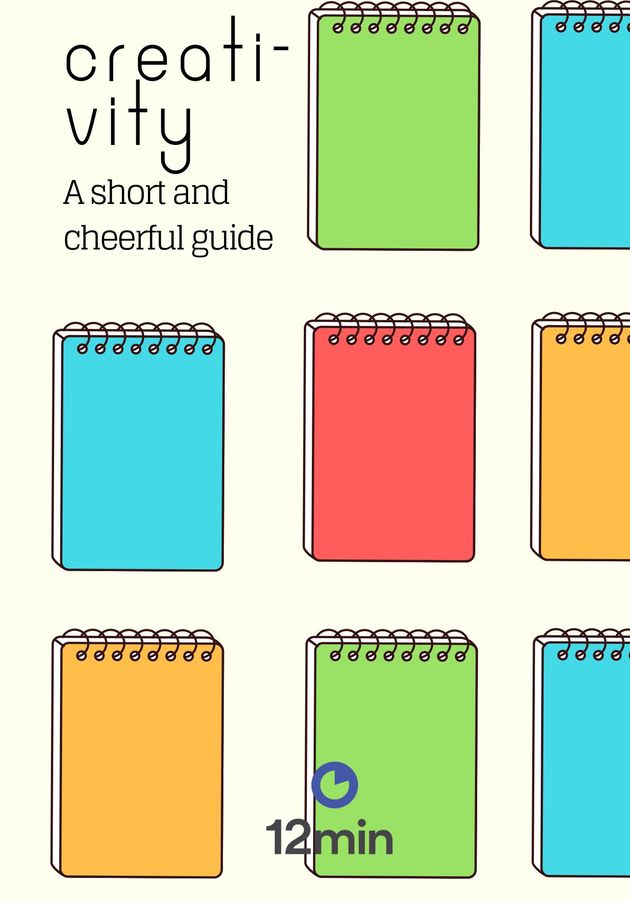Do you feel like you have lost all sense of direction and purpose? Are you going through a hard time of grief and loss and cannot see the other side? “Didn’t See That Coming” might be the perfect read for you.
Rachel Hollis is somewhat of an expert on hardships: at the age of 14, her only brother committed suicide. Then, she lost her twin daughters. And in 2020, her 16-year marriage fell apart. As a professional motivational speaker, Hollis has publicly worked through many of the crises in her life. In this book, she shares that wisdom with you. So, get ready to learn how to productively work through the hardships you are facing in your own life.
Accept your pain
The reason you are reading this is probably because you are going through a crisis in your life right now or because you have gone through one in the past. Maybe someone close to you died. Maybe a significant relationship fell apart. Maybe you got laid off from work. Or maybe you are struggling with the effects of the COVID-19 pandemic.
Hollis says the first thing to do to overcome grief is to accept it. Accept any negative feelings in order to move beyond them. If you ignore them or push them away, they will always come back to haunt you. It is like covering up old paint: if you don’t scrape it off and sand it down first, it will show through the new layer of paint eventually.
You may have heard of the “stages of grief” coined by psychiatrist Elisabeth Kübler-Ross. These are the stages people go through before they get better. They are denial, anger, depression, bargaining, and acceptance. And while you may be feeling all of those things, the stages of grief might still be insufficient to describe your experience.
The author adds to these stages the suffering questions: Who, What, When, Where, Why, and How? Questions that would plague her every day but that she did not have answers for. She also says that all the negative feelings, especially in times of loss, are like another presence in the room. They are simply a fact of being.
Dealing with suffering is tough. But in order to become a better version of yourself in the future, you must work through the pain. You will come out of it changed, and how you work through it is entirely up to you. Every person’s suffering is different, and while you can gather the tools to help you get through it, in the end, the journey is up to you.
Create a new identity
Oftentimes, grief is coupled with an identity crisis. So, on top of all the negative feelings you are struggling with, you also begin to question yourself. Maybe your work was your identity and you lost it. Or maybe you have been trying to get pregnant for years, but it is not working, so your desired identity as a mother is denied to you.
The author experienced such an identity crisis after she had published “Girl, Stop Apologizing.” Suddenly, people started coming up to her or sending her letters about grief, loss, abuse, and other tragic events that had happened to them. And because the author believed it was her duty to help those people, she did her best to help every single person and answer every single letter.
She started having anxiety attacks and was scared to leave the house, all because her identity boundaries had dissolved, and she let herself be defined by how other people saw her.
Do you have any identities that you have adopted because that is how other people define you? Think about who you want to be. And then remind yourself every day of your chosen identity. The author, before getting published, wore a bracelet with her manuscript word count on it every day so she could remind herself of her goal.
Change your perspective
How many truths have you held in your life that turned out later to be absolutely untrue? For example, Pluto was for the longest time believed to be a planet of our solar system. But then it turned out that, in fact, Pluto is only a dwarf planet.
Your perspective is the way you see the world, and it is based not on truth, but on your past experiences. It guides your actions now. For example, maybe you got bitten by a dog as a child and even though you don’t remember it, you now still cross over to the other side of the street every time you see a dog.
The good news is: you are in control of your perspective! Whatever is happening in your life at the moment is only negative or positive based on your perspective of it. As the author puts it, “There’s immense power in understanding that you are subconsciously coloring your reality through the lens of past experiences.”
This means you can change your pain into something more positive: you can instead see your hardships as potential for renewal, rebirth, or the start of something new. It creates hope in your life.
Once you understand that your perspective on life really does make a difference, you should also consider your mindset. There are two types: the fixed mindset and the growth mindset.
If you have a fixed mindset, you believe that you are set in your ways. There is a limit to what you can do. But if you have a growth mindset, your possibilities are endless: you believe that whatever you want you can achieve, eventually. There are no limits to your potential.
You can compare this to a piece of clay. People with a growth mindset are like a new block of clay. They can be whatever they want to be: a bowl, a mug, or a sculpture. But those with a fixed mindset are like a finished piece of clay that has come out of a kiln - they are set in their ways and cannot change.
So consider this: do you have a fixed or a growth mindset? Once you understand the difference, you can work towards changing your attitude. There is hope, and you will feel better one day. To change your mindset, you can see if you are willing to try a different approach. Maybe you have always been set against therapy, but maybe that is exactly what might help you now?
Have courage
Chances are you are scared of something. Fear is the cousin of pain because, more often than not, it is the things that have caused us pain in the past that will scare us in the future. If you have been left by someone you loved and trusted, you will probably be scared to enter again into a relationship with someone else.
But fear is crippling. And surely, you do not want your future to be defined by fear. It is your decision to live out your life as you want to, and you should decide that there is something greater than fear to live for.
Being courageous is not the same as being fearless, it simply means doing something despite being scared. If you cannot find courage in your life, it is because you have not found something that is more important than your fear. Just think of a young mother: even on the verge of total exhaustion, she still finds the strength to nurse her baby, no matter the time of day.
It is essential to fight for courage rather than do nothing at all, especially if you have children. The author experienced this at a young age. When her brother committed suicide she was a young girl, and her parents were so paralyzed with grief that they stopped looking after her. She moved out at the age of 17 and spent Christmas that year with one of her sisters - none of them even heard from their parents on the holiday.
Don’t give up, especially when others depend on you. You need to find the strength to make those people your priority and start living for them, even if you do not have the strength to do it for yourself.
Reimagine your future
When you go through a season of grief, it can be hard to see a purpose in life. It is a catch-22 situation: you are lost because you don’t know where life is taking you, and you cannot find your purpose when you are lost.
Just take 2020 as an example. At the beginning of the year, many countries in the world announced a national or at least state-wide lockdown. Many people were only allowed to leave the house to do grocery shopping. And when they did venture out, they were greeted by a post-apocalyptic vision of their hometown. For some people, this might have been the first time they felt out of control of their own lives.
If you feel like you lost control, here is a surprise for you: you have never been in control in the first place! It is only in times of extreme hardship when we realize that we cannot possibly predict anything that will happen in life. We cannot even predict what is going to happen in the next hour.
It has always been this way. We are lulled into a false sense of security by the predictability of everyday life, but then something completely unpredictable happens, like the death of a loved one, and suddenly it feels like everything spins out of control.
Acknowledge that the unknown is unpredictable, but you can still make a conscious decision to rebuild your life when you are in a crisis. Going through a crisis automatically lays the groundwork for a new life. Being conscious of this progress means that you get to decide what this new life of yours is going to look like.
You can write down a new version of life that you would like to have. Focus on the great things in your life before your hardship or recall some dreams that you failed to achieve in the past. Finally, choose one negative thing that you will stop doing immediately, and one goal that you will start pursuing immediately.
This will give you a new sense of purpose in life, and you will feel so proud once you achieve it. It does not in any way have to be connected with the thing that hurt you, but instead can be in any area that you are passionate about.
Final Notes
We all go through hardships at some point in our lives. Grief, loss, and sadness are part of life’s journey, and there is no easy way out. To move beyond hard times, you have to work through them first. You can see hard times as an opportunity for change: they allow you to reinvent yourself and your life.
If you work hard and face up to your grief and fear, you will come out of the time of crisis as a better person.
12min Tip
If you are struggling to envision a better future for yourself, try to complete the following prompts: “The things I love most about my life today are ...” and, “If I could change anything about my life it would be ...”





























